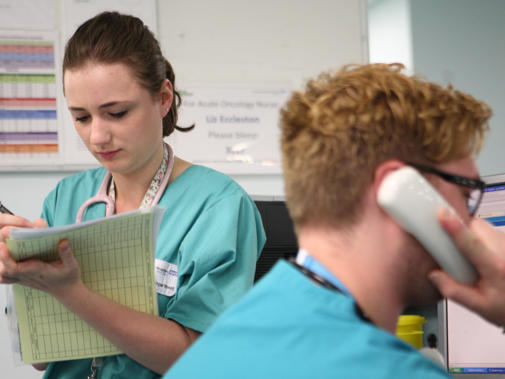A review commissioned by the Department of Health and Social Care has found female doctors still earn around 80 to 85 per cent as much as men for the same hours – and that the pay gap grows with age.
While it welcomes the report, the BMA is now calling on the Government to ensure certain recommendations are acted on immediately, despite the difficult environment.
These include extending enhanced pay for parental leave to all doctors as soon as possible, greater childcare support and addressing structural barriers faced by doctors who work less-than full-time.
Intersectional considerations
The BMA is also calling for immediate implementation of the recommendation that all future analysis and reporting on the gender pay gap should be intersectional to address differences in race, disability and other characteristics.
Helena McKeown, who chairs the BMA’s representative body, said action was needed now. ‘Even when you take into consideration that there are times in their careers when women work fewer hours than men, taken hour by hour, women hospital doctors earn an average of 18.9 per cent less than men, GPs an average of 15.3 per cent less, and clinical academics 11.9 per cent. The difference is stark. This is wrong.
'There is no gender pay gap at the start of medical careers – it emerges towards the end of training when women are in their 30s, when many women are having children, and women’s earnings only begin to catch up with men’s when they reach their 60s. This can’t be right.
‘We know that women working in hospital are less likely to be on higher spine points and that women in general practice are less likely to be GP partners. We also know one in five recipients of clinical excellence awards are women and four in five are men – this can’t be right. The high cost of childcare in the UK is also an important factor, with female and male doctors saying it is a barrier to career progression.
‘We welcome this report and call for immediate action to address these serious issues.’
‘Substantive’ differences
The DHSC’s long awaited report, Mend the Gap: The Independent Review into Gender Pay Gaps in Medicine in England, was published on 15 December following an investigation chaired by Professor Dame Janet Dacre. The research lead was Professor Carol Woodhams of the University of Surrey.
The review found there are gender pay gaps throughout the medical profession and that these ‘are considerable for a single occupational group’, according to the report authors. They say that gender pay gaps remain ‘substantive’ in many comparisons between men and women, even when factors such as actual numbers of hours worked are taken into consideration.
The report says that the key driver for the pay gap is the underrepresentation of women in the highest paid positions, grades and specialties. However, even after adjusting for age, seniority and a range of other factors (ie doing a more ‘like for like’ comparison) a gender pay gap remains.
Medical careers have failed to evolve with the changing demographics and working patterns of the profession, resulting in a lower average salary for the female workforce. The structure and culture of medical careers was designed originally for a predominantly male workforce, with the expectation of full-time work for a long career and ability to take on extra commitments.
Already dated
The review’s recommendations are grouped under seven themes: address structural barriers to the career and pay progression of women; make senior jobs more accessible to more women; introduce increased transparency on gender pay gaps, mandate changes to policy on gender pay gaps; promote behaviour and culture change; review clinical excellent and performance payments and change accordingly; implement a programme for continued and robust analysis of gender pay gaps.
The BMA has lobbied on all or some of these issues – such as enhanced share parental leave, access to childcare and improvements for LTFT doctors – consistently in the last few years.
It welcomes many of the recommendations, but notes the time taken to publish the review could mean some findings are out of date, and the effect of the COVID-19 pandemic on health services must be taken into account.
The BMA said there are some areas where the review should have gone further. This includes greater detail on how to implement cultural change and looking at the gender pensions gap and the unfairness of LTFT pension contributions.
‘The BMA will consider the review findings in more detail and do what we can to ensure that action is taken to narrow the pay gap,’ says Dr McKeown. ‘The situation as it stands is bad for patients, bad for the taxpayer and bad for the profession.’

